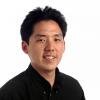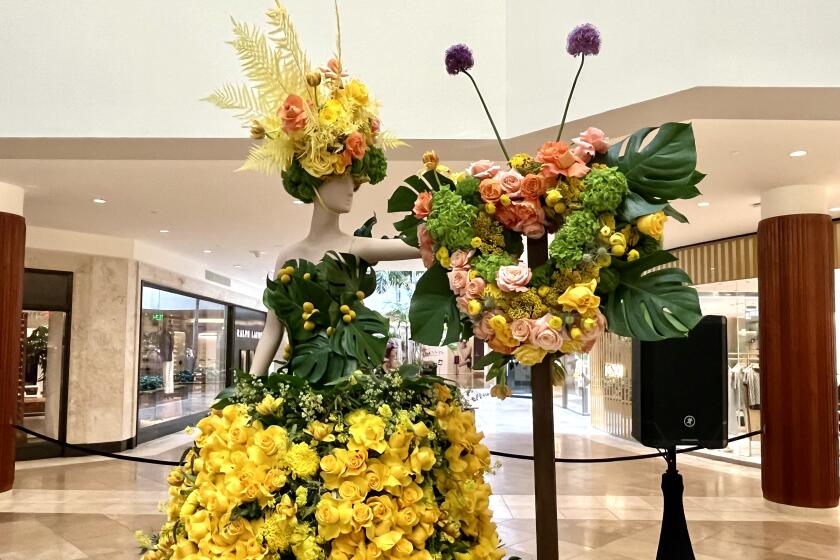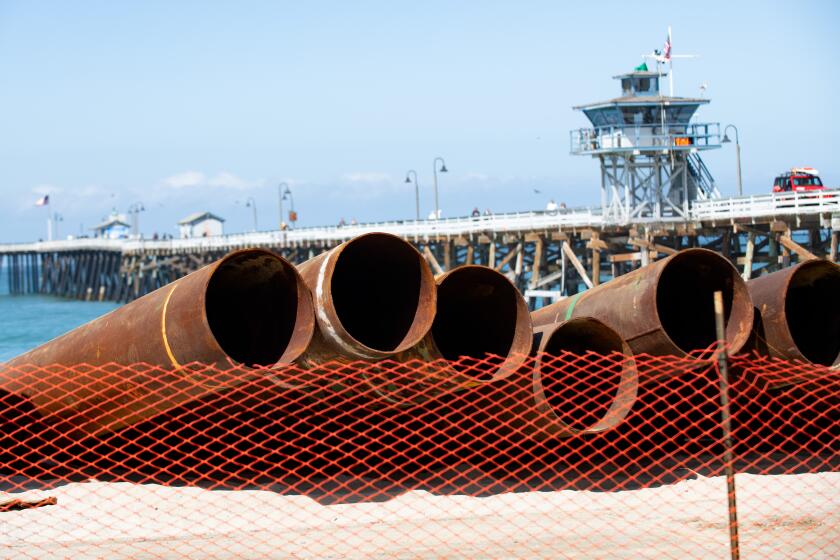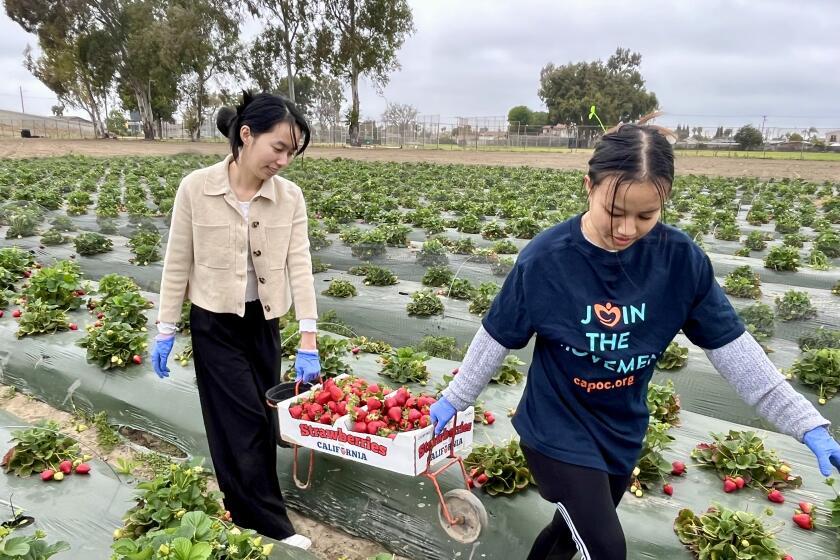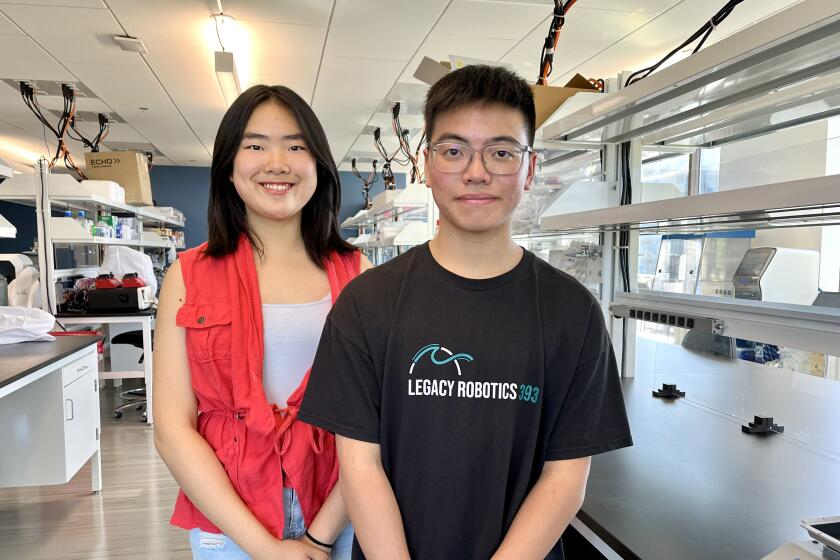Iranian American musician makes an old instrument new again
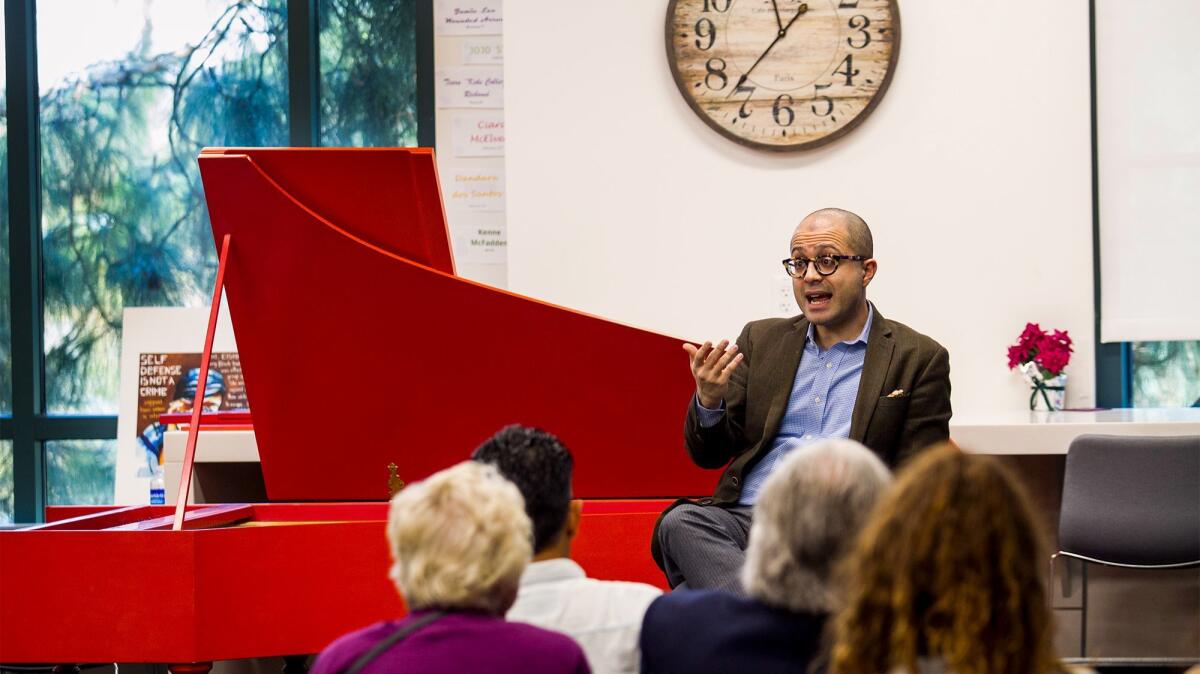
Mahan Esfahani is obsessed with the harpsichord — he has been ever since he was a kid.
The Iranian American wunderkind — he already has won numerous awards and was selected “Newcomer of the Year” by BBC Music Magazine in 2015 — first heard the harpsichord on cassette when he was 8 years old. He built his first harpsichord from a kit just before he turned 16.
“It’s been an obsession which has never left me,” Esfahani, 33, said during an interview at Chapman University’s Musco Center for the Arts. He and the Los Angeles Chamber Orchestra (LACO) will perform Johann Sebastian Bach’s complete Brandenburg Concertos at Musco Center on Dec. 14 at 7:30 p.m.
The harpsichord — an ancient, piano-like instrument that dates back to the Middle Ages — can “have this vocal quality; it can have even an orchestral quality,” Esfahani said. “People think it’s a dinky, tinkly instrument, but it’s not actually. It has such a monumental sound.”
Esfahani has taken the instrument to new heights, performing throughout Europe, the United States and Asia. He has recorded albums with Hyperion Records and Deutsche Grammophon, and regularly gives talks and master classes at schools and universities. He has collaborated with symphony orchestras, chamber ensembles and edgy, contemporary electronic artists.
“I see what I’m doing as akin to the revival of coffee and beer and making things,” said the Stanford University graduate, who was born in Tehran but grew up in the suburbs of Washington, D.C. He now lives in Prague, Czech Republic. “I see my act as having much more in common with craft, with hipster culture even, and our relationship to analog and making things from scratch.”
At Stanford, where he studied musicology and history, Esfahani was mentored by George Houle, a champion of early music, including Baroque and Renaissance compositions. Esfahani studied harpsichord in Boston with Peter Watchorn, and spent many years playing under the guidance of legendary Czech harpsichordist Zuzana Ruzickova.
“She was a Holocaust survivor, and really an amazing person,” Esfahani said of his former teacher, who died in September. A documentary about Ruzickova, “Zuzana: Music is Life,” was released earlier this year, and Esfahani is trying to get LACO and others to present the film and give it and Ruzickova more exposure.
‘Conversing with eternity’
The Brandenburg Concertos are a collection of six instrumental works composed and presented by Bach to Christian Ludwig, margrave of Brandenburg-Schwedt, a member of the House of Hohenzollern and a military officer in the Prussian army.
The concertos, presented in 1721, are regarded as some of the best orchestral compositions of the Baroque era, and significantly highlight the harpsichord as an orchestral instrument, particularly concerto No. 5 in D major.
“The Brandenburg Concertos are the most glorious job application in history,” Esfahani said, noting that Bach was trying to get a municipal job as a musician with them, even including a cover letter. He didn’t get the job, but the music lives on. However, all six concertos are rarely performed together in their entirety.
“I’ve known them since I was 10,” Esfahani said of the concertos. “I’ve listened to them nonstop, and they still surprise and amaze me. What you’re hearing with in Bach — he is conversing with eternity in his music.”
Esfahani is an artistic partner with LACO through 2019. Led by concertmaster Margaret Batjer, LACO has been recognized by Public Radio International as “America’s finest chamber orchestra.” The performance at Musco Center represents the group’s first as an official artistic affiliate with the center and the university.
“This wonderful ensemble of musicians from Los Angeles has really distinguished themselves nationally by the level of their repertoire,” said Richard Bryant, executive director of the Musco Center, which opened in March 2016.
“The harpsichord is an instrument that we don’t always hear from,” Bryant added. “But we thought it would be an interesting opportunity to work with LACO and an international artist, born in Iran, who’s very well known in the field.”
For those who do not know the difference between the harpsichord and the piano, Esfahani explains it simply. “A string when plucked has a different quality of vibration and different properties than a string that is struck.”
The harpsichord string is plucked, usually by a quill, while the piano string is struck.
Esfahani has ambitious plans for his career and his chosen instrument. He is scheduled to perform solo at Carnegie Hall, New York, in May 2018. He’s also got performances, both solo and with others, planned in Prague; Munich; London; Innsbruck, Austria; Beirut; Madrid; Pisa, Italy; and Lucerne, Switzerland.
“I can’t believe I made a profession doing it,” Esfahani said. “I think it’s unwise to think you’re owed a career. People attend because they enjoy it, right? It has to be interesting enough to want to spend money to listen to it.
“The first idea I got rid of was that I’m on some sort of historical or moral mission. I play harpsichord because it’s beautiful and, as an audience member, you should take that same kind of seriousness with it, because I think it’s worth your time. The instrument is just so expressive.”
If You Go
What: Los Angeles Chamber Orchestra with Mahan Esfahani, Bach’s Brandenburg Concertos
When: 7:30 p.m. Dec. 14
Where: Musco Center for the Arts, Chapman University, 415 N. Glassell St., Orange
Cost: $35-$75
Information: (844) 626-8726 or muscocenter.org.
Richard Chang is a contributor to Times Community News.
All the latest on Orange County from Orange County.
Get our free TimesOC newsletter.
You may occasionally receive promotional content from the Daily Pilot.
